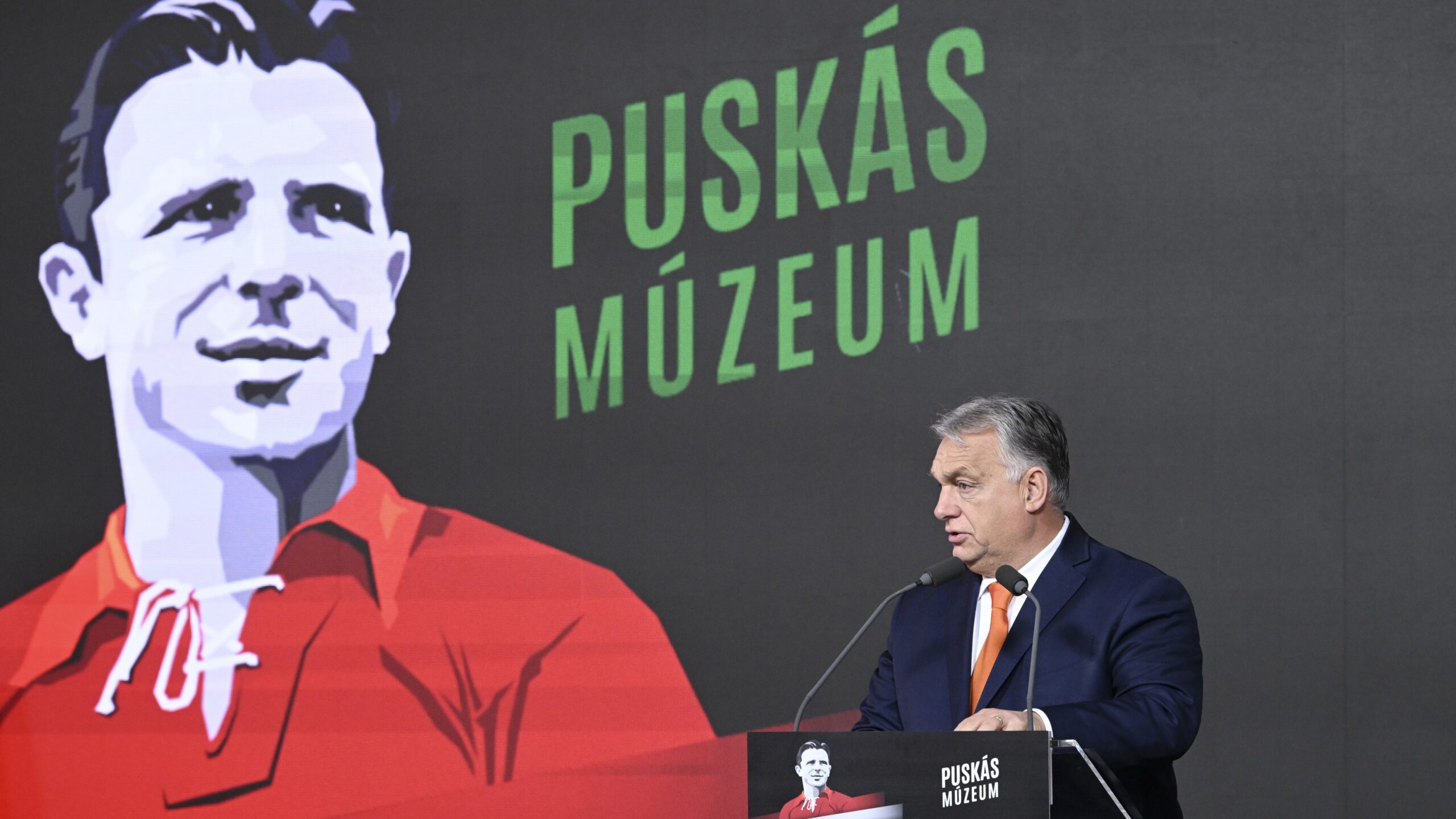In a speech commemorating the opening of the Puskás Museum at the Puskás Arena on Monday, Prime Minister Viktor Orbán highlighted the transformative journey of Hungarian football from its nadir to its current resurgence. He recalled a time when Hungarian football, once among the finest in the world, had almost vanished due to the combined impact of political isolation, communist suppression, and neglect. Yet today, the nation stands proud with a thriving football scene, iconic infrastructure, and a renewed legacy.
Orbán recounted how Hungary’s footballing prowess, exemplified by the famed Danube School and the Golden Team, was dismantled during the communist era. Despite its attempts to exploit football for propaganda, the regime’s mistrust of the sport’s nationalist sentiments led to its decline. The unfinished Népstadion (the old stadium built before the system change) stood for decades as a stark reminder of Hungarian football’s lost glory.
‘Orbán described Puskás as an eternal role model’
The dream to restore this glory was realized five years ago with the opening of the Puskás Arena, a state-of-the-art stadium named after the legendary Ferenc Puskás. Orbán detailed the achievements of this modern venue, which hosted matches in the 2020 UEFA European Championship and significant finals like the 2023 UEFA Europa League. With Hungary set to host the 2026 Champions League final, the stadium has become a global hub for premier football events.
Orbán paid homage to Ferenc Puskás, describing him as the embodiment of Hungarian football’s legacy and an eternal role model. He emphasized that the newly opened Puskás Museum serves as a tribute to Puskás and the Golden Team, preserving their legacy for future generations. ‘The communist leaders once shamefully disowned Ferenc Puskás, declaring him a traitor. Yet he was arguably the most famous Hungarian of the 20th century, who brought pride to Hungary even during its darkest times,’ he remarked.
The Prime Minister also reflected on the strides Hungarian football has made in recent years. The number of registered players has tripled, and investments in infrastructure have resulted in the renovation of over 2,000 football pitches and the establishment of football academies nationwide. Clubs like Ferencváros have returned to European prominence, and Hungary’s national team has once again qualified for major tournaments.
In closing, Orbán expressed optimism for the future, envisioning Hungarian football reaching heights comparable to the Golden Team era. He lauded the collective effort behind these achievements, noting that the Puskás Arena is not just a stadium but a cultural symbol representing Hungary’s resilience and unity.
As Orbán inaugurated the Puskás Museum, he remarked: ‘This museum tells a uniquely Hungarian story – one of triumph against adversity, of a sport deeply woven into our national identity. It honours the past, inspires the present, and sets the stage for the future of Hungarian football.’
With the Puskás Museum now standing alongside the iconic stadium, Hungary has taken another significant step in paying homage to its football heritage.
Related articles:








